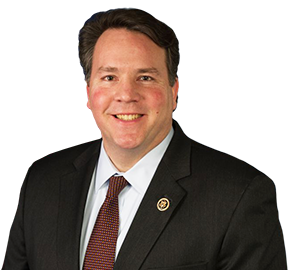Sen. Joe Manchin, D-W.Va., announced Thursday that he is reintroducing the Senate version of the two bills with four other Democrats.
One bill is the Revitalizing the Economy of Coal Communities by Leveraging Local Activities and Investing More (RECLAIM) Act. That legislation would release $1 billion from the remaining, unappropriated balance in the federal fund for abandoned mine lands to states to be spent on reclamation projects in communities affected by abandoned mines and the downturn in coal mining.
The other is the Abandoned Mine Land Fee Extension Act. This bill would enact a 15-year extension of the fee levied on coal companies that funds the reclamation program for abandoned mine lands, which is set to expire in September.
The bills are endorsed by the United Mine Workers union, the West Virginia Rivers Coalition, the National Wildlife Federation and Appalachian Voices.
Rep. Matt Cartwright, D-Pa., already introduced the House version of both bills and advocated for them during Wednesday’s town hall.
“[C]leaning up hazardous mine lands and creating jobs is just the right thing to do for the American people,” Cartwright said.
Federal regulators say it would take more than $10 billion of work to reclaim eligible abandoned mine land sites, and Cartwright and other speakers touted the importance of preserving funding for the Abandoned Mine Land reclamation fee program.
“Failure is not an option here,” Cartwright said.
The fee helps provide funding for eligible states like West Virginia to address hazardous conditions and pollution left behind by past coal mining. The U.S. Department of the Interior announced $18.9 million for West Virginia to reclaim abandoned mine lands last month. And more than $8 billion has been distributed to states for abandoned mine land reclamation projects since the passage of the Surface Mining Control and Reclamation Act established the program in 1977.
Wednesday’s town hall featured Blue Acre Appalachian Aquaponics, an Abandoned Mine Land grant-powered joint economic development project in Mingo County that is fostered by the Mingo County Redevelopment Authority and Sprouting Farms, a Summers County-based nonprofit farming education and resource center.
The funding turned an abandoned mine site just inside the town of Kermit, that had dangerous open portals and a slag pile that needed remediated, into a sustainable agricultural enterprise that now has three employees born and raised in Kermit that sells lettuce and tilapia processed onsite to schools, grocery stores and individuals.
Cartwright made the case that the RECLAIM Act, versions of which stalled in the House and Senate last session after being introduced by Cartwright and Manchin, respectively, would bolster the economies of struggling coalfield communities even further.
“There’s no reason that former coal communities should have to wait decades to have cleaner water and more job opportunities in their areas,” Cartwright said. “And that’s where the RECLAIM Act comes in.”
Rep. David McKinley, R-W.Va., co-sponsored the House version of the RECLAIM Act in the last session of Congress.
“Using AML funding to assist with economic revitalization and diversification — as proposed in the RECLAIM Act — is one of the tools needed to help Appalachia and other coal producing regions,” McKinley said in an emailed statement Wednesday. “It is not a silver bullet to fix the damage that will be done to people’s livelihoods — but it is one step we can take.”
The RECLAIM Act would make about $200 million available from fiscal years 2022 to 2026, with funding required to create favorable conditions in economically distressed mining communities.
But West Virginia’s other two representatives in the House aren’t on board with McKinley.
Rep. Carol Miller, R-W.Va., does not support the RECLAIM Act, saying it would divert Abandoned Mine Land program funding from its original purpose. She advocates for modernizing and innovating coal mines, instead.
Rep. Alex Mooney, R-W.Va., is noncommittal on the RECLAIM Act, saying he supports its goals but would have to review the specific details of the legislation if it came up for a vote in the House.
Miller and Mooney have co-sponsored a bill introduced by Rep. Liz Cheney, R-Wyo., competing with Cartwright’s Abandoned Mine Land fee authorization extension proposal. Cheney’s bill, supported by the National Mining Association, would extend the program for seven years — as opposed to the 15 in Cartwright’s legislation — and reduce fees by 40%.
Mooney argued that the seven-year extension would allow Congress the opportunity to revisit the policy so that it doesn’t become outdated. Mooney said the Cartwright bill’s 15-year program fee extension, with no reduction in reclamation fees, could negatively affect the coal industry over time.
Sen. Shelley Moore Capito, R-W.Va., who co-introduced a previous version of the RECLAIM Act in 2017 with then-Senate Majority Leader Mitch McConnell, R-Ky., could not be reached for comment.
Wednesday’s town hall was sponsored by the Eastern Pennsylvania Coalition for Abandoned Mine Reclamation, Southern Appalachian Mountain Stewards, Statewide Organizing for Community eMpowerment, the Clinch Coalition, Kentuckians for the Commonwealth, ReImagine Appalachia, the Appalachian Citizens’ Law Center, Citizens Climate Lobby, Center for Coalfield Justice, Ohio Valley Environmental Coalition, West Virginia Interfaith Power and Light, the Alliance For Appalachia, and Appalachian Voices.

